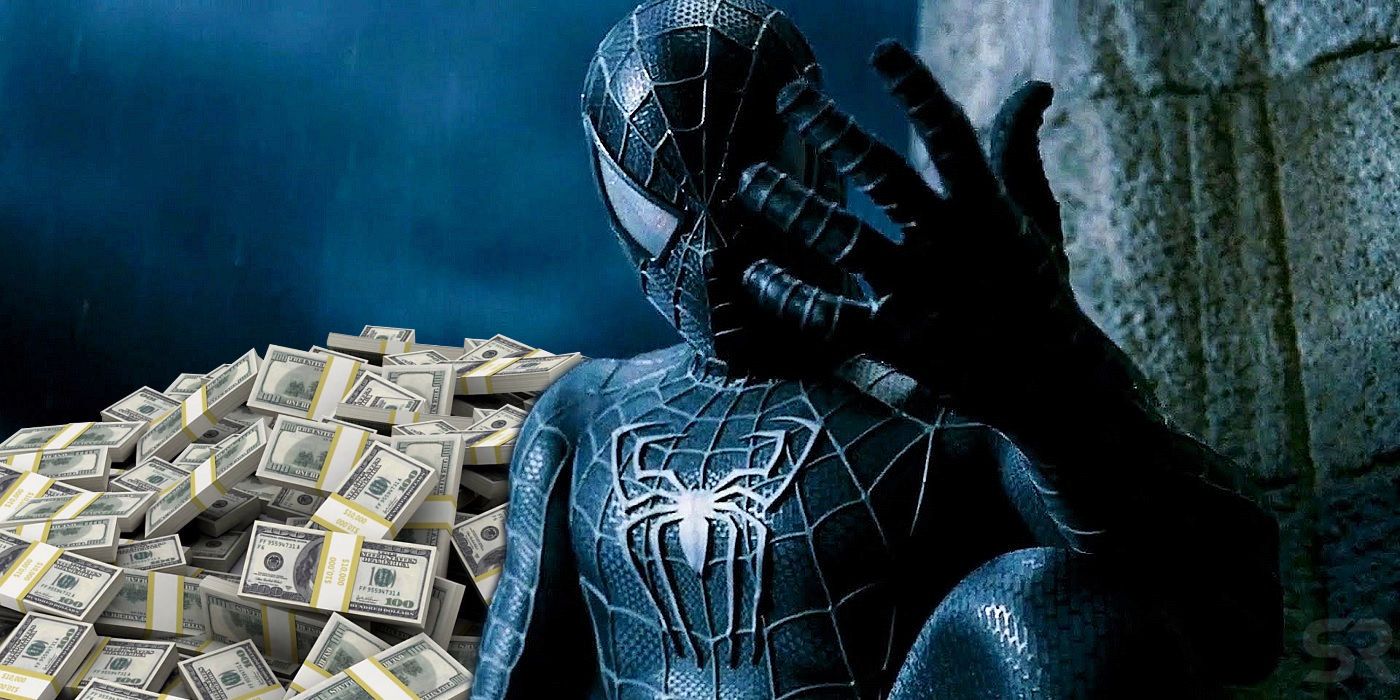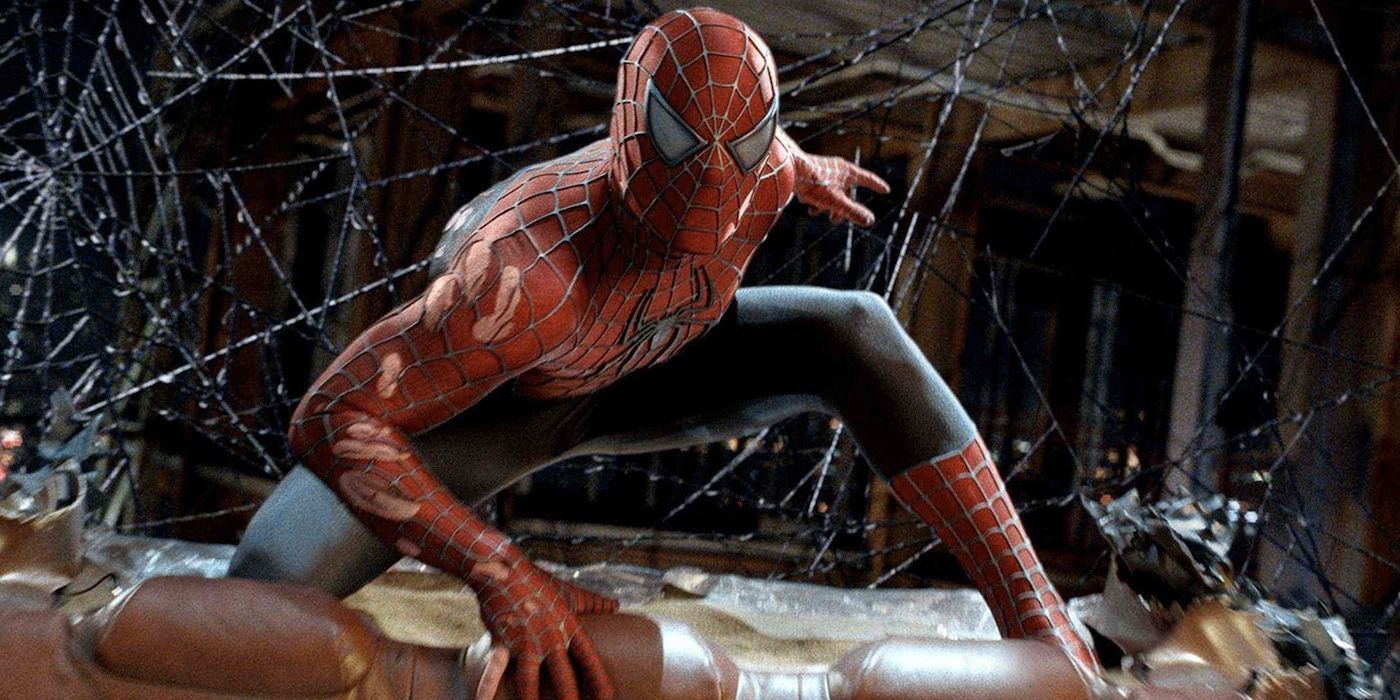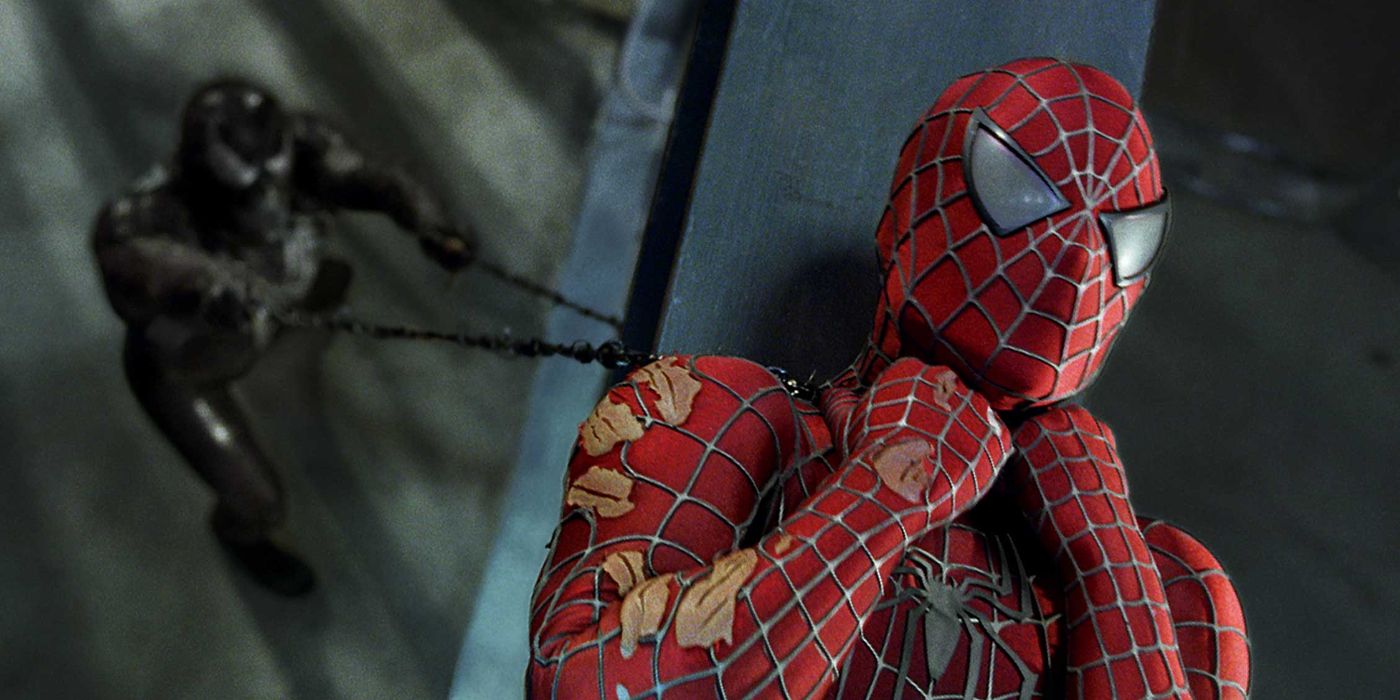
Despite being poorly received by both fans and critics, Spider-Man 3 was a massive box office hit. Released in 2007, the third and final film in Sam Riami’s Spider-Man trilogy continued the story of Peter Parker (Tobey Maguire), who finally had his secret revealed to Mary Jane (Kirsten Dunst) at the end of Spider-Man 2.
Unlike its predecessors, Spider-Man 3 pit the wallcrawler against not one but three prominent members of his rogues’ gallery in Marvel Comics. Aside from having to contend with an alien symbiote that twisted his personality, Peter also had to battle Thomas Haden Church’s Sandman, a super-powered criminal connected to Uncle Ben’s death, and Harry Osborn (James Franco), who used his father’s Green Goblin technology to get revenge on Spider-Man. His problems were further complicated when the alien symbiote turned Eddie Brock (Topher Grace) into one of the hero’s most dangerous adversaries from the comics: Venom.
When it released, critics called Spider-Man 3 a disjointed mess littered with problems. A common critique was that in incorporating three villains (all with their own stories), Spider-Man 3 tried to do too much at once. It was said that the humor felt flat, and that it did little to build on the characters’ stories. Reviews of Spider-Man 3 were incredibly harsh, and to this day it is considered one of the worst Spider-Man films. Its poor reception also led to the Spider-Man franchise being rebooted. However, its bad reputation didn’t stop it from performing extremely well at the box office. Here’s how that happened.

First of all, it’s important to note that Spider-Man 3 was one of the most talked-about movies of 2007, and its easy to see why. The superhero genre was still in its early days when Sony Pictures released Spider-Man and Spider-Man 2. The first movie, with its special effects, fighting sequences, and heartfelt story about Peter Parker becoming Spider-Man, helped to define the genre in a big way. It gave birth to an entire cast of memorable characters, including the titular hero, J. Jonah Jameson (J.K. Simmons), Norman Osborn (Willem Dafoe), Uncle Ben (Cliff Robertson), and more.
Unlike most sequels, Spider-Man 2 easily lived up to the standards set by the original. In fact, many feel that it actually surpassed the first film. Even in 2020, Spider-Man 2 is still regarded as one of the best superhero films ever. Considering that both were solid superhero movies, expectations were understandably high for the third installment. The popularity surrounding the first two films generated a lot of interest around Spider-Man 3. The reveal that it would include Venom only added to the hype.

Bad reviews didn’t hold Spider-Man 3 back as much as it does a lot of other movies, and much of that has do with when it earned its money. The movie broke the opening weekend box office record by bringing in $381 million worldwide. That’s a little less than half of its total box office gross, which was $895 million. Making almost $400 million in one weekend was unheard of at the time, and would be impressive even by today’s standards. Those numbers can be attributed to the marketing for Spider-Man 3 as well as the enthusiasm created by Spider-Man and Spider-Man 2. Since it takes naturally takes a bit of time for critical reception to influence a film’s box office performance, its bad reviews didn’t play much of a role in theater attendance for the first weekend.

Spider-Man 3 greatly benefited by a lack of direct box office competition, which would be rare nowadays considering how many superhero movies come out every year. The reason for this is likely because other studios had the foresight to know Sony had a hit on its hands, and didn’t want their own films to suffer from releasing too close to it. No big movies released shortly before or after Spider-Man 3’s May 4 release date. It wasn’t faced with any real competition until Shrek the Third and Pirates of the Caribbean: At World’s End hit theaters on May 17 and May 19, respectively. So Spider-Man 3 getting an opportunity to hog the spotlight for the span of a few weeks only helped fuel its dominance at the box office - for three weeks, no less.

Spider-Man 3 was never meant to end Peter’s story. Both Maguire and Dunst expressed interest in reprising their roles, and Sony at one point was committed to making a fourth installment, with Raimi once again set to direct. A script was being worked on, and actors had been cast for new characters like Black Cat, Vulture, and Mysterio. Though much work had already been done on the film, Sony scrapped it anyway. Raimi said this decision was reached when he realized that he wasn’t going to be able to get the script turned in by the deadline. Since Raimi was unhappy with Spider-Man 3, he wanted to make sure the fourth movie was an improvement. His concern was that the deadline would make that goal unmanageable. As a result, Raimi and Sony abandoned the project.
Spider-Man 3’s bad reviews should get a share of the blame for why Sony was willing to let go of Spider-Man 4 so easily. The third movie managed to survive the negative attention, but that was because it was riding off the hype from its predecessors. Spider-Man 4 wouldn’t have had the same benefits. It would have had to go through the challenge of having to recover from the damage that Spider-Man 3 had done to the franchise. Plus, it would seem that the movie might have repeated the same problem that Spider-Man 3 had, which was the inclusion of too many antagonists. To Sony, Spider-Man 4 would have been a much more lucrative project if the third movie had been an all-around success.
Sony Pictures moved on from Spider-Man 4, but had no intention of giving up on the character. Having seen how well Raimi’s three films had done at the box office, they understood the Spider-Man property’s potential and decided to continue building on it. It was determined that the best alternative to Spider-Man 4 was a reboot with all new actors. According to Raimi, this was an option executives at Sony were mulling over even when Spider-Man 4 was still in development. One advantage of the reboot idea was that they could retell Spider-Man’s origin story. It was said that being a teenager with super powers was a key part of his character, and Raimi’s Spider-Man trilogy had already moved far beyond this stage. Thus, The Amazing Spider-Man was born.
from ScreenRant - Feed https://ift.tt/2EfhdmS



0 Comments